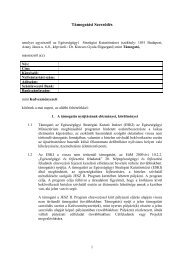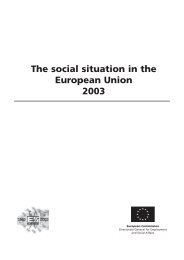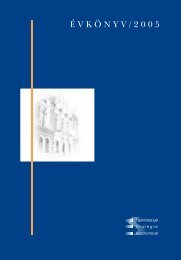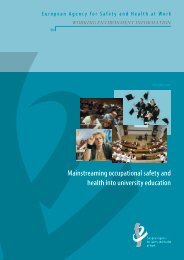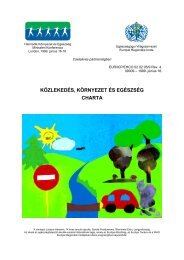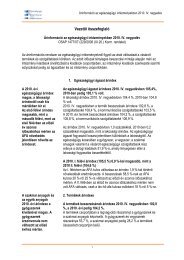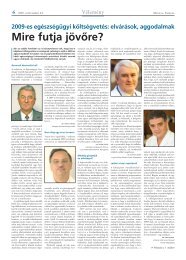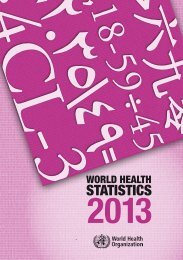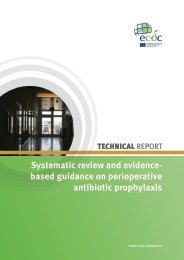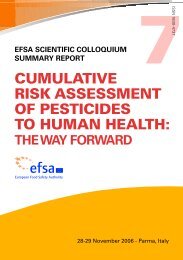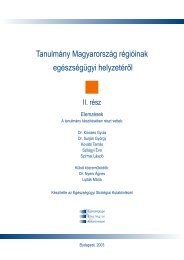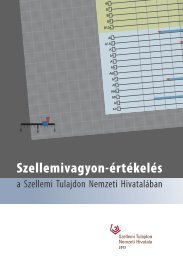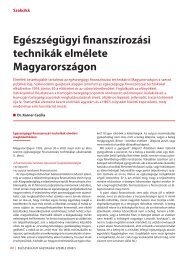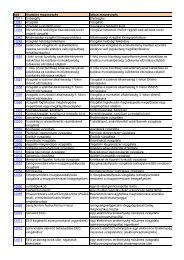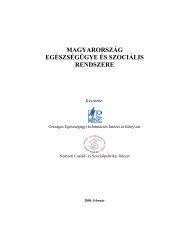WHO Technical Report Series, No. 981 - World Health Organization
WHO Technical Report Series, No. 981 - World Health Organization
WHO Technical Report Series, No. 981 - World Health Organization
Create successful ePaper yourself
Turn your PDF publications into a flip-book with our unique Google optimized e-Paper software.
7. Quality assurance – new approaches<br />
7.1 Quality risk management<br />
The first draft points for guidelines on this topic were initially prepared in 2010<br />
and widely circulated for comments. The Expert Committee commented on the<br />
drafts in 2010 and 2011. Numerous comments were received during the global<br />
consultation phases. During the informal consultation on <strong>WHO</strong> quality risk<br />
management and quality guidelines held on 28–30 June 2011, it was suggested<br />
that the principles included in these guidelines could be more concise to enable a<br />
timely initial implementation. Full implementation of the quality risk management<br />
(QRM) system and the application of the related tools would necessitate a longer<br />
time frame. The QRM approach was considered by all experts to be a crucial<br />
element of quality assurance in the future.<br />
Subsequent to the meeting of the Expert Committee in October 2011, the<br />
document on QRM was completely restructured on the basis of the numerous<br />
comments made and advice received before and during the consultation. The<br />
aim of the guidelines is to assist the development and implementation of effective<br />
QRM, covering activities such as research and development, sourcing of materials,<br />
manufacturing, packaging, testing, storage and distribution.<br />
The Expert Committee reviewed the document and the most recent<br />
proposals for revisions based on feedback and comments received in response to a<br />
further round of global consultation. Members of the Committee made proposals<br />
for a number of amendments. The Expert Committee adopted the revision of the<br />
guidelines, subject to implementation of the changes approved (Annex 2).<br />
<strong>WHO</strong> <strong>Technical</strong> <strong>Report</strong> <strong>Series</strong>, <strong>No</strong>. <strong>981</strong>, 2013<br />
22<br />
7.2 Pharmacopoeial harmonization<br />
At the International meeting of world pharmacopoeias held on 28 February<br />
to 1 March 2012, the 23 pharmacopoeias present committed to further efforts<br />
towards pharmacopoeias harmonization. The participants acknowledged that<br />
the harmonization of standards would be essential to global public health in the<br />
future. Pharmacopoeial harmonization was also a plenary topic at the two-day<br />
public conference organized by the International Pharmaceutical Federation<br />
(FIP) and <strong>WHO</strong> in Amsterdam in October 2012.<br />
International meeting of world pharmacopoeias<br />
<strong>WHO</strong> maintains an Index of pharmacopoeias and had organized a meeting<br />
inviting all world pharmacopoeias included therein, from 28 February to 2 March<br />
2012. Twenty-three pharmacopoeias attended the meeting to discuss challenges<br />
and issues. They committed to working further towards harmonization and to



